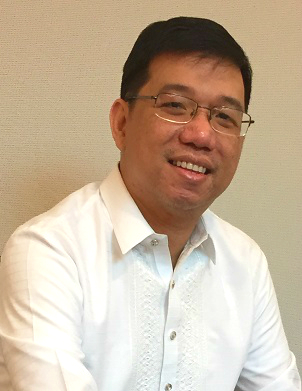
Philippine Leader to the High-Level Task Force on ASEAN Economic Integration, Undersecretary for Industry Development Ceferino S. Rodolfo
The 31st Meeting of the High-Level Task Force on ASEAN Economic Integration (HLTF-EI) convenes today to discuss and recommend mechanisms that will support and strengthen the implementation of the AEC Blueprint 2025 towards greater regional cohesion and integration.
The 31st HLTF-EI Meeting gathers ASEAN high-ranking trade officials in consultations on how the region can effectively address emerging challenges in a dynamic global environment. The Philippines will be represented by Dr. Ceferino S. Rodolfo, Undersecretary for Industry Development of the DTI and Managing Head of the Board of Investments.
“The ASEAN High Level Task Force is considered a visionary group that assesses the progress of the region’s economic integration and proposes measures that will be submitted to the ministers who, in turn, will discuss these at the ASEAN Economic Ministers’ Retreat in March 2017. The meeting gives us the opportunity to consult each other on several matters to ensure that the benefits of integration are fully realized and shared by everyone in ASEAN. Strengthening compliance and monitoring our AEC commitments, and finding ways to deepen engagement with our stakeholders in designing and implementing regional strategies and initiatives are some of the topics we will focus on during the meeting,” Undersecretary Ceferino added.
In light of the substantial progress of ASEAN’s economic integration, the AEC Blueprint 2025 requires a stronger undertaking in the presence of wider competition and vast opportunities in goods, services, skilled labor, investments and capital.
“Our recommendations will take into account the need to implement both liberalization and cooperation measures and move forward the implementation of integration activities articulated in the ASEAN Economic Community’s 2025 Vision,” Undersecretary Rodolfo stated.
“The Philippines will also be taking to the HLTF the statement of its Civil Society Organization on how ASEAN integration should truly be people-centered, environmentally-conscious, and equitable.”
The meeting’s agenda includes the presentation of the Philippines’ economic priority deliverables for its ASEAN 2017 Chairmanship with the theme “Partnering for Change, Engaging the World”, as well as the commemorative events and activities to celebrate ASEAN’s 50th Founding Anniversary.
“For the Philippines, priority is in pushing for an ASEAN that is driven by inclusiveness and innovation,” the PH HLTF-EI Lead highlighted. “One measure of success for this hosting is in terms of how many Filipinos and ASEAN nationals are we able to lift out of poverty through the policies and cooperative projects that we are able to introduce, institutionalize, and implement during the hosting year”, he added.
“Inclusive, Innovation-Led Growth,” AEC’s thematic priority for 2017, sets the tone for the Philippines’ agenda on increasing trade and investments, integrating MSMEs in the Global Value Chains (GVCs), and developing an innovation-driven economy. This includes the proposal to establish a more effective tool for measuring trade facilitation; launching of a pathfinder initiative by adopting self-certification for MSMEs; leading the way forward on trade in services through a modern ASEAN Trade in Services Agreement (ATISA); developing a peer review monitoring mechanism for AEC commitments; creating linkages between MSMEs and MNEs using the Inclusive Business framework; inclusivity of Women and Entrepreneurship; adoption of a declaration on innovation; and, the launch of the landmark ASEAN Roll-on Roll-off (RO-RO) Scheme. The Philippines’ agenda fully supports ASEAN in its Golden Jubilee year with specific actions that promote deeper and meaningful engagement with stakeholders and provide steps towards regional integration and cooperation.
The HLTF-EI is composed of ASEAN’s Trade Vice Ministers from the ten ASEAN economies and functions primarily as an advisory body to the economic ministers of the ASEAN member states.
Its primary responsibility is to ensure that the 10 ASEAN economies are on-track and on-time with the plans and programs intended to realize regional economic integration and achieve the vision of an ASEAN Economic Community. The 31st HLTF-EI meeting will be held from 15-16 February in Manila.


